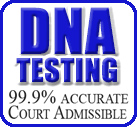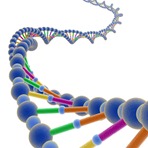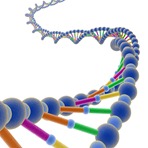Open on Evenings & Holidays! Extended And Flexible Hours!
* DNA Testing for Immigration
* Paternity Testing
* Deceased Paternity
* Forensic Testing & Much More!
Open on Evenings & Holidays! Extended And Flexible Hours!
* DNA Testing for Immigration
* Paternity Testing
* Deceased Paternity
* Forensic Testing & Much More!

AB DNA Testing Services
Phone: 718-701-0292
We offer New York’s BEST AND MOST AFFORDABLE DNA TESTING with a full range of services to verify family relationships.
We specialize in the following types of DNA tests:
• Paternity • Maternity • Grand-parenting • Sibling Relationship • Biological Relationship Studies • Twin Studies • Deceased Paternity • Forensic Testing • Child Identity Testing • Family Tree and Genealogy Testing
* EVEN LOWER PRICE THAN HOME DNA KITS.
* NO HIDDEN COSTS – Collection kits, photography, and fingerprinting all included.
* 99.9% (OR GREATER) ACCURACY.
* FINAL RESULTS ARE PRESENTED IN A NOTARIZED DOCUMENT IN A CLEAR AND CONCISE FORM.
* ALL RESULTS ARE COURT ADMISSIBLE.
* OVER 15 YEARS EXPERIENCE.
* NO REFERRALS NECESSARY!
* FAST AND PAINLESS SAMPLE COLLECTIONS, USING BUCCAL (Mouth) SWABS.
* SPANISH, PORTUGUESE, FRENCH AND CREOLE SPOKEN.
* PLEASE SEE TRANSLATIONS OF OUR SERVICES IN: SPANISH, BENGALI, URDU, CHINESE AND NEPALESE!
Located In Woodside Queens, easily reachable from all boroughs (Queens, Manhattan, Brooklyn, Bronx and Staten Island), Westchester, Nassau and Suffolk.
We can also schedule DNA tests at our network of collection sites throughout New York city.
Call us. We have found that in many cases, our personalized service can overturn your denial. We will call the passport office or immigration dept. for you and plead your case over phone verbally.
90% of time they will revoke your denial, as long as you get the required information to them quickly.
AB DNA TESTING SERVICES
AB DNA Testing Services © |
 |
718-701-0292 We are open on evenings & holidays! |
 |
Legal Paternity Test: $349
NYS compliant testing only. NO HIDDEN COSTS OR EXTRA FEES.
We do not provide prenatal DNA testing in-house. If you need prenatal testing, we can refer you to a provider we’ve worked with previously:
Prenatal DNA Testing NYC.
AB DNA Testing Services offers a broad range of DNA testing options using certified, accredited laboratories and verified collection procedures.
 DNA testing for immigration purposes in NYC has become a crucial tool in verifying biological relationships when traditional documentation is insufficient or unavailable. In New York City, many families rely on DNA tests to meet the requirements of immigration authorities and to ensure family reunification. This blog will provide a comprehensive overview of DNA testing for immigration, explaining the process, its importance, and what to expect.
DNA testing for immigration purposes in NYC has become a crucial tool in verifying biological relationships when traditional documentation is insufficient or unavailable. In New York City, many families rely on DNA tests to meet the requirements of immigration authorities and to ensure family reunification. This blog will provide a comprehensive overview of DNA testing for immigration, explaining the process, its importance, and what to expect.
DNA testing is often used in immigration cases to prove biological relationships between petitioners and beneficiaries when other forms of evidence, such as birth certificates or family records, are not available or are deemed insufficient. The U.S. Citizenship and Immigration Services (USCIS) and other immigration authorities may request DNA tests to confirm parent-child, sibling, or other familial relationships to prevent fraud and ensure accurate processing of immigration applications.
There are several types of DNA tests commonly used in immigration cases, each designed to confirm different types of biological relationships:
Parentage testing, including paternity and maternity tests, is used to confirm the biological relationship between a parent and a child. This is the most commonly requested DNA test for immigration purposes.
Sibling testing determines whether individuals share one or both parents. This test is useful when siblings are applying for immigration benefits together and need to prove their biological relationship.
Avuncular testing is used to establish a biological relationship between a child and their alleged aunt or uncle. This test can be helpful in cases where the parents are not available for testing.
Grandparent testing can confirm a biological relationship between a child and their alleged grandparents. This test is often used when parents are unavailable or deceased.
The DNA testing process for immigration purposes involves several steps, ensuring accuracy and compliance with immigration authorities’ requirements:
It’s crucial to select a laboratory accredited by the American Association of Blood Banks (AABB) for immigration DNA testing. Only AABB-accredited labs are recognized by the USCIS and other immigration authorities.
Sample collection is typically done using a cheek swab to collect cells from the inside of the mouth. The process is quick, painless, and non-invasive. Sample collection must be supervised by an authorized professional to maintain chain of custody and ensure the integrity of the samples.
Maintaining a strict chain of custody is essential for immigration DNA testing. This involves documenting every step of the sample collection, handling, and testing process to ensure that the samples are accurately matched to the individuals being tested.
Once the samples are collected, they are sent to the accredited laboratory for analysis. The lab will compare the DNA profiles of the tested individuals to determine the likelihood of a biological relationship.
The laboratory will provide a detailed report of the test results, including the probability of the claimed relationship. These results are then sent directly to the requesting immigration authorities and the individuals involved.
DNA testing for immigration offers several benefits:
DNA testing is highly accurate, with a probability of relationship typically exceeding 99.99%. This provides strong evidence to support immigration applications.
DNA tests can conclusively prove biological relationships, which is especially valuable when documentation is lacking or questioned.
Knowing that your application is supported by irrefutable genetic evidence can provide peace of mind during the often stressful immigration process.
Understanding what to expect can help alleviate concerns and ensure a smooth testing process:
Reputable DNA testing services maintain high standards of professionalism and confidentiality, ensuring your personal information is protected.
The testing service should provide clear instructions and communication throughout the process, from scheduling sample collection to receiving the test results.
Turnaround times for DNA test results can vary, but most accredited labs provide results within a few weeks. Be sure to confirm the expected timeline with your testing service provider.
DNA testing for immigration purposes is a reliable and accurate method for proving biological relationships and meeting immigration authorities’ requirements. By understanding the process and selecting an accredited and reputable DNA testing service, families can navigate the immigration process with greater confidence and peace of mind.
For professional DNA testing services and expert guidance, contact AB DNA Testing Services.
AB DNA Testing Services ©
718-701-0292